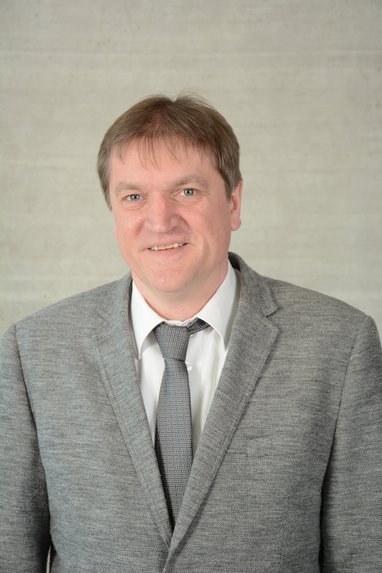Prof. Dr. Volker Coors
Prorektor Forschung und Digitalisierung

Geoinformatik
per Web-Konferenz
https://hft-stuttgart-de.zoom.us/j/61004982620
- Geodäsie und Geoinformatik
Vita
-
seit 1.3.2023
Prorektor Forschung und Digitalisierung
-
2019 - 2023
Wissenschaftlicher Direktor des Instituts für Angewandte Forschung
-
2017 - 2023
Sprecher Forschungsschwerpunkt "Smarte Technologien, Prozesse und Methoden"
-
seit 2016
Leiter Steinbeis Transferzentrum Technische Beratung an der Hochschule für Technik Stuttgart
-
2006 - 2017
Studiendekan Bachelor-Studiengang Informationslogistik
-
seit 2002
Professor der Informatik und Geoinformatik an der HFT Stuttgart, Fakultät Vermessung, Informatik und Mathematik
-
2003
Promotion (Dr.-Ing.) am Fachbereich Informatik, Technische Universität Darmstadt, Gesamturteil „Sehr gut“
-
2001
DAAD-Stipendium für einen Forschungsaufenthalt am Georgia Institute of Technology, Atlanta, USA
-
1997-2002
Wissenschaftlicher Mitarbeiter bei der Fraunhofer Gesellschaft, Institut Graphische Datenverarbeitung, Darmstadt. Seit 2001 Leitung der Projektbereiche 3D-GIS und Location Based Services, seit 2002 stellvertretender Abteilungsleiter
-
1997
Studium der Informatik (Diplom) mit Nebenfach Bauingenieurwesen an der Technischen Universität Darmstadt, Gesamturteil "Mit Auszeichnung bestanden".
Forschung
![[Bild: HFT Stuttgart]](/fileadmin/Dateien/Forschung/_processed_/e/2/csm_RT3DPS_Fellbach_dad5163d34.jpg)
![[Bild: HFT]](/fileadmin/Dateien/Forschung/_processed_/d/6/csm_Logo_3ProzentPlus_bda839ed47.png)
![[Bild: HFT Stuttgart]](/fileadmin/Dateien/Forschung/_processed_/4/0/csm_CircularGreenCity_logo_RGB_553bbcc684.jpg)
![[Bild: HFT Stuttgart] Grafische Darstellung Architekturmodell](/fileadmin/Dateien/Forschung/_processed_/7/b/csm_ProjektBild_fd2a227c93.jpg)
![Cityscape with connecting dot technology of smart city conceptual [Bild: Adobe Stock/stnazkul]](/fileadmin/Dateien/Forschung/_processed_/d/3/csm_AdobeStock_230291089_f9cea2e774.jpeg)
![[Bild: HFT Stuttgart /Forschung] Logo des Projekts](/fileadmin/Dateien/Forschung/_processed_/2/0/csm_SmallLogo_EnSys-LE_e3f8c44864.jpg)
![EnvisagePlus-Grafik-Speckgürtel-Lastverschiebungspotenziale [Bild: ZSW, Jann Binder] Grafik Stadt-Landausgleich zwischen einer ländlichen „Plus-Energiezelle“ und einem Industriegebiet](/fileadmin/Dateien/Forschung/_processed_/a/5/csm_Grafik_Speckguertel_Lastverschiebepotenziale_0435e03941.png)
FORTH-BW
Entwicklung und Implementierung eines bedarfsgerechten Forschungsdatenmanagements an HAW in Baden-Württemberg – Teilvorhaben 4: Schwerpunktthema: IT-Unterstützung
![[Bild: Hochschule für Wirtschaft und Umwelt Nürtingen-Geislingen] FORTH-bw Logo](/fileadmin/Dateien/Forschung/_processed_/5/4/csm_logo_forth-bw_f583cc2b51.png)
iCity 2: DiaOpt4iCity
Diagnostik zur Kategorisierung und Optimierung von Gebäudestrukturen und Wärmenetzen
![[Bild: HFT Stuttgart/iCity]](/fileadmin/Dateien/Forschung/_processed_/4/1/csm_iCity-Logo-DiaOt4_721185ba03.png)
![[Bild: HFT Stuttgart]](/fileadmin/Dateien/Forschung/_processed_/1/3/csm_iCity-Logo-ICT4_d980daa4df.png)
![[Bild: HFT Stuttgart] Übergeordnete Ziele und Ansätze des Impulsprojektes "Gebäude, Quartiere und Infrastruktur"](/fileadmin/Dateien/Forschung/_processed_/1/8/csm_IQG4icity_Ziele_und_Ansaetze_817095112c.jpg)
![[Bild: HFT Stuttgart]](/fileadmin/Dateien/Forschung/_processed_/8/4/csm_iCity-Logo-Streetmoves4_b9812964f7.png)
![[Bild: HFT Stuttgart] Logo Projekt UDigiT4iCity](/fileadmin/Dateien/Forschung/_processed_/c/e/csm_iCity-Logo-UDigiT4_5ccae26b38.png)
![[Bild: Changing Cities e.V.]](/fileadmin/Dateien/Forschung/_processed_/5/f/csm_INSPIRER_9e46780084.png)
IN-SOURCE
Analyse und Modellierung des Lebensmittel-Wasser-Energie-Nexus anhand von drei Modellregionen
![[Bild: HFT Stuttgart] Grafische Abbildung des Projektschemas](/fileadmin/Dateien/Forschung/_processed_/b/f/csm_INSOURCE_Project_Scheme_89a7e51c3a.png)
![[Bild: HFT / M4_LAB] Meeting eines Teams](/fileadmin/Dateien/Forschung/_processed_/3/f/csm_Forschung_team1_19a084da82.jpg)
![[Bild: HFT Stuttgart] Person vor Hinweisschild](/fileadmin/Dateien/Forschung/_processed_/8/9/csm_Fyler_foto_300_6af446a6e3.jpg)
![[Bild: HFT Stuttgart] Logo SimStadt](/fileadmin/Dateien/Forschung/_processed_/a/a/csm_SimStadt-Logo-center_941b8feed7.png)
Veröffentlichungen
-
1997 - heute
Eine vollständige Publikationsliste findet sich auf Research Gate: https://www.researchgate.net/profile/Volker-Coors
-
Ausgewählte wissenschaftliche Publikationen sind auf OrcId verfügbar: https://orcid.org/0000-0002-0413-8977
Auszeichnungen und Preise
-
2012
Best Paper Award from Fraunhofer IGD "Intergrating Quality Management in to a 3D Geospatial Server"
-
2007
Digital Earth Award for the VEPs (Virtual Environmental Planning System) project
Wettbewerbe
-
2000
Prize winner ideas competition, virtual and augmented reality of the BMBF for the idea sketch GEIST
Weiteres
Volker Coors hat an der TU Darmstadt Informatik studiert und im Bereich Computergrafik promoviert. Seit 2002 ist er Professor für Informatik und Geo-Informatik an der HFT Stuttgart. Seine Forschungsschwerpunkte sind Urbane Digitale Zwillinge, 3D-Geodateninfrastrukturen und die Visualisierung raumbezogener Daten. Von 2006-2017 war er Studiendekan des Studiengangs Informationslogistik, von 2019 - 2023 wissenschaftlicher Direktor des Instituts für angewandte Forschung. Seit März 2023 ist er Prorektor für Forschung und Digitalisierung der HFT Stuttgart.
Prof. Coors bringt als Mitglied des Open Geospatial Consortiums seine Forschunsgergebnisse in die Standardiseirung ein, u.a. in der CityGML Standard Working Group (SWG). Er ist Gründungsmitglied der gemeinsamen Kommission „3D-Stadtmodelle“ der Deutschen Gesellschaft für Kartographie e.V. und der deutschen Gesellschaft für Photogrammetrie, Fernerkundung und Geoinformation e.V., Sprecher des Beirats des Runden Tisch GIS e.V. und Vize-Präsident der internationalen Urban Data Management Society.